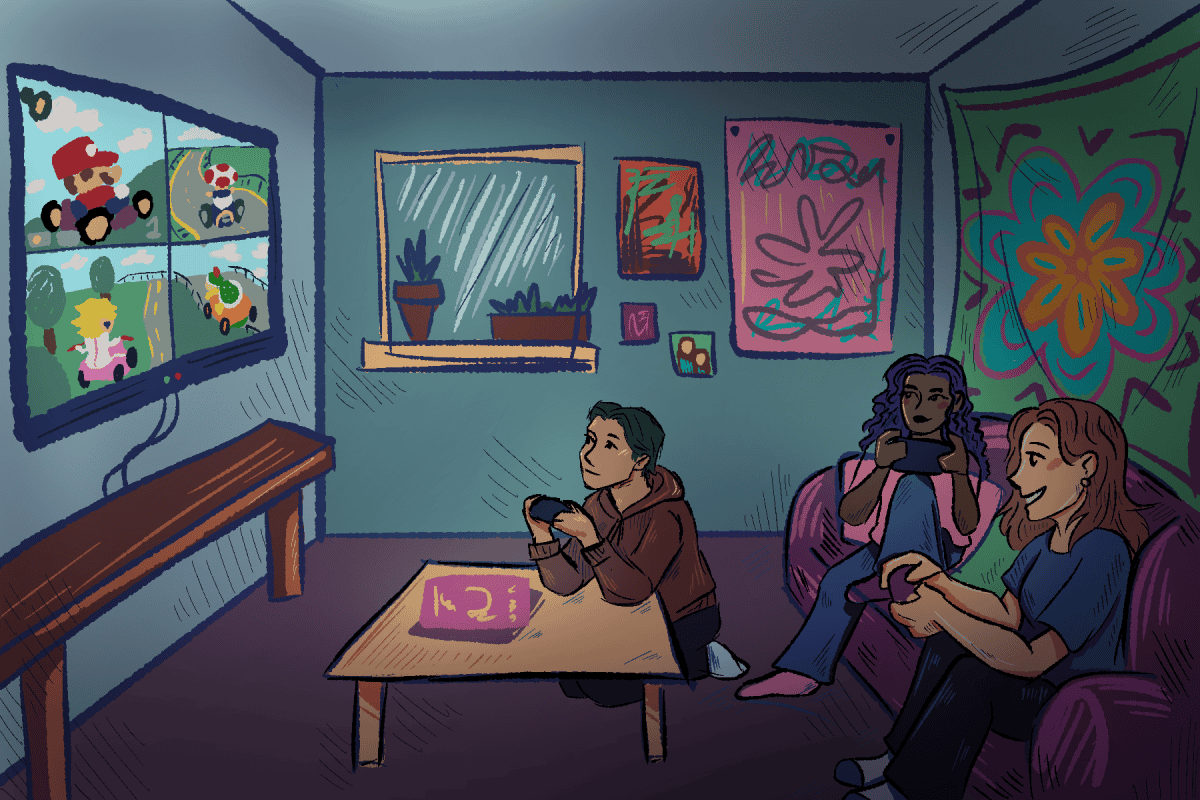The idea of In-Yun is one that to American audiences will seem strange and exotic. It is essentially the notion that human interaction, whether intentional or accidental, operates on a basis of predetermination founded upon previous lifetimes.
Whether it be two strangers who bump shoulders on the subway or lifelong sweethearts finally tying the knot, In-Yun submits that these relationships stem from the actions of their subjects’ prior incarnations. The two lovebirds could have been literal birds who simply sang on the same branch; the two strangers could have been part of a passionate affair.
This is a simplification of a mystical and nuanced concept, but it conveys an important theme: the physicality of relationships. Not necessarily intimacy, but rather literal relational tangibility.
“Past Lives,” the debut of South Korean Canadian director Celine Song, is fascinated with this physicality, this idea of distance. The film has been met with typical A24 adoration, earning a 98% Rotten Tomatoes’ critic score, an 8.1/10 on IMDb and a remarkably high 94/100 on Metacritic, and though it was released June 2, it has not faded out of relevance. With award season quickly approaching, it is still abundantly present in the minds of viewers.
And rightfully so. It’s a thematically rich film, both beautiful and incredibly thought-provoking.
The film follows the unique story of Na Young, who eventually changes her name to Nora, and Hae Sung, childhood friends with a mutual romantic attraction. They are separated early in life, after their first “date” at age 12, by Nora’s familial immigration to the United States. For multiple decades their relationship is restricted to anxious emails, forlorn text messages and tantalizing Skype calls.
In all of this, relational distance features prominently in both language and imagery. It is perhaps Song’s most potent tool of meaning, giving a new layer of significance to Nora and Hae Sung’s on-off romantic tension.
One of the marketing posters particularly exemplifies the film’s bowing to the palpable yet mysterious nature of In-Yun: The two protagonists clasp the same balance pole on a train, yet the pole at the same time divides them.
This type of imagery repeats itself elsewhere. Nora and Hae Sung play on two ends of a rock sculpture in a park. Before Nora’s immigration, they say goodbye and then literally diverge paths, one taking a side road and the other trekking up a flight of stairs.
The script likewise contains many instances of In-Yun in action. There is, of course, the actual description of it, which fittingly accompanies the introduction of John Magaro’s Arthur, who marries Nora and becomes the permanent blockade to Hae Sung’s love for her.
There are subtler allusions, however: Nora ruminates in one scene on how people change, and she uses the analogy of leaving her past self in Korea and discovering a new one in America.
Perhaps most profound is an interaction between Nora and Arthur in the film’s latter scenes. While in bed with Nora and thus in intimate proximity to her, Arthur speaks of how he often feels distant; he notes how Nora speaks Korean in her sleep and laments, “It feels like there’s a part inside you I can’t get to.” In response, Nora does her best to convince him that there is no distance, that she loves only him.
The thing is, she’s having to convince the audience as well. This is what makes the scene so striking; for how close they are in reality, a married couple lying side by side, shoulders touching, one can’t help but feel that there is some sort of rift. She might not be in an adulterous relationship, but the mere presence of Hae Sung as a reminder of her past gives her reassurances an unsure ambiguity.
“Past Lives” founds itself on the throughline of change, and these are only some of many poignant meditations. Through succinct writing and visuals, the movie uses the unique concept of In-Yun to put a new spin on the vivaciousness of human personality. Complemented by perfectly nuanced performances and a hopeful yet somber tone, it makes for a deeply enriching viewing experience.
Go in not only expecting to be put through an emotional wringer, but also to be left deep in thought.







